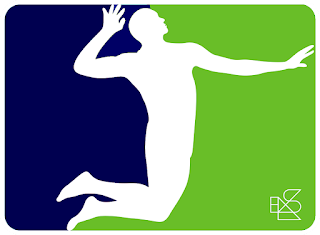When is it Science?
Keith Lyons' post today on coding in science, along with the usual array of meetings, conversations and discussions that occur working in High Performance sport, got me thinking about the way we define coaching and science.
When we are talking about 'science' we really mean the 'scientific method', which is generally defined as systematic observation, measurement and evaluation when attempting to impact a certain premise (or hypothesis). There is no educational requirement to do science, nor is it necessary to be employed as a scientist to do science. Of course, education and environment can certainly help.
At times the practical definition of science has become, 'something done by a scientist'. And the followup assumption is that it isn't scientific if it isn't done by a scientist. It is actually the opposite, you are a scientist if you do something scientific.
In the same way, you are a coach if you do some coaching. Of course, if you make an effort to learn about coaching, and evaluate the impact of your coaching, you can become a better coach. At times coaches underestimate the methodical way they come to decisions and form their opinions.
I am a scientist. I am also a coach. If I am coaching I don't cease to be a scientist, and visa versa. (Interestingly even though my current employment is neither a scientist nor coach, I'm expected to bring expertise in both to the job!)
(Photo Credit)



I agree that the definition of 'science' is often presented as something that someone employed as a scientist has done. Much of what sport scientists do is not really 'science' in my opinion (as a sport scientist). Much of what we do is merely the technical collection of data - not for any real reason other than refinement - an almost-automatic feedback loop - that doesn't require a scientist to do it. A well trained monkey or a specificaly designed machine could probably do some of what we do just as effectively and with a lot less complaining.
ReplyDeleteScience, in my experience and therefore opinion, is a creative process. The definition you provided, Alexis, is also incomplete. The scientific method, as I understand it and practise it, is:
1. to make observations, systematic or otherwise (my Honours thesis came out of one peculiar finding in one research paper and I built everything else around that single anomalous finding), then;
2. (the best and most fun part) is to come up with a hypothesis to explain that observation. This is often pure creativity and fantasy - trying to make some strangely-shaped piece of a jig-saw fit into the picture that we already have and, in some cases finding that it doesn't fit, so you have to change the whole picture.
3. The technical part then comes in developing a way to test your hypothesis and the results of that can lead to even further bouts of creativity when your findings don't come out the way you expected (like if the placebo you used in your control group actually turning out to be much more effective than the supplement being tested, for example)
4. Explain what just happened.
5. Finally, you have to communicate your findings. Telling everyone what you found and arguing about it with your peers is actually an important part of the scientific method. That's why science takes so long to refine our knowledge base. Some of the arguments have gone on for decades.
It's true that anyone can do this. Much of our training in our specific scientific disciplines revolves around being able to design and conduct specific tests - the mastery of gas analysis, force platforms or video analysis, but anyone could learn how to use these, especially as computer and electronic technology continue to advance. The technicalities of 'science' are more and more being automated, so the true 'art' of science - the creation and assembly of jig saw pieces - is becoming more and more like the 'art' of coaching. As science is applied to the purpose of finding ways to make athletes perform more effectively, science in essence becomes coaching, doesn't it?
Thanks for your comment Craig - I think this is the first time I've got a comment on this blog which was longer than the original post!
ReplyDeleteGreat definition of science - I particularly like parts 2 and 5 (I think that 5 often gets overlooked) - and I certainly accept that my definition of science was somewhat superficial. There is certainly no question that anyone following that scientific process is doing 'science' - I don't think I would necessarily say they are coaching though.
My question, of 'when is it science?', is more related to the practical definitions. To put is simplistically, imagine a coach and a scientist reading the same literature and then planning out training based on the principles found in these papers. In practice, the scientists will be seen to be doing 'science' and the coach will be seen to be 'coaching'. My argument is that coaches often think they are not being scientific, when in fact they are. Also that they are often not perceived to be being scientific, when in fact they are.
Yes, brevity is not my strong point. I agree entirely.. (I thought I said that). Everyone does science, coaches more than most - although some of it is not what we might call 'good' science - often a bit biased and with no control group, but still better than a lot of published, scientific articles that I've read. I find the people who are best at doing science are usually five-year olds. Most scientists, however, get paid to not do science. They do measurement and politics.
Delete